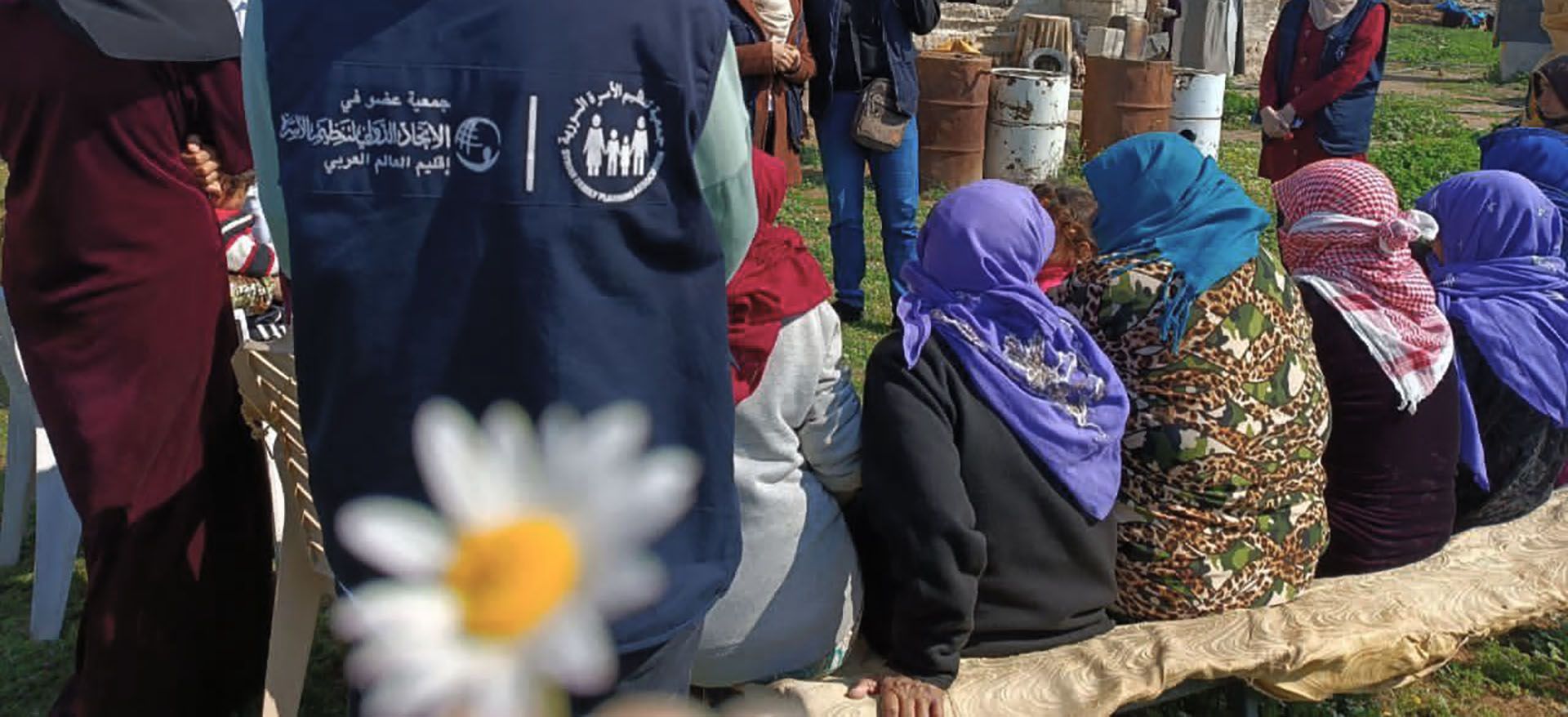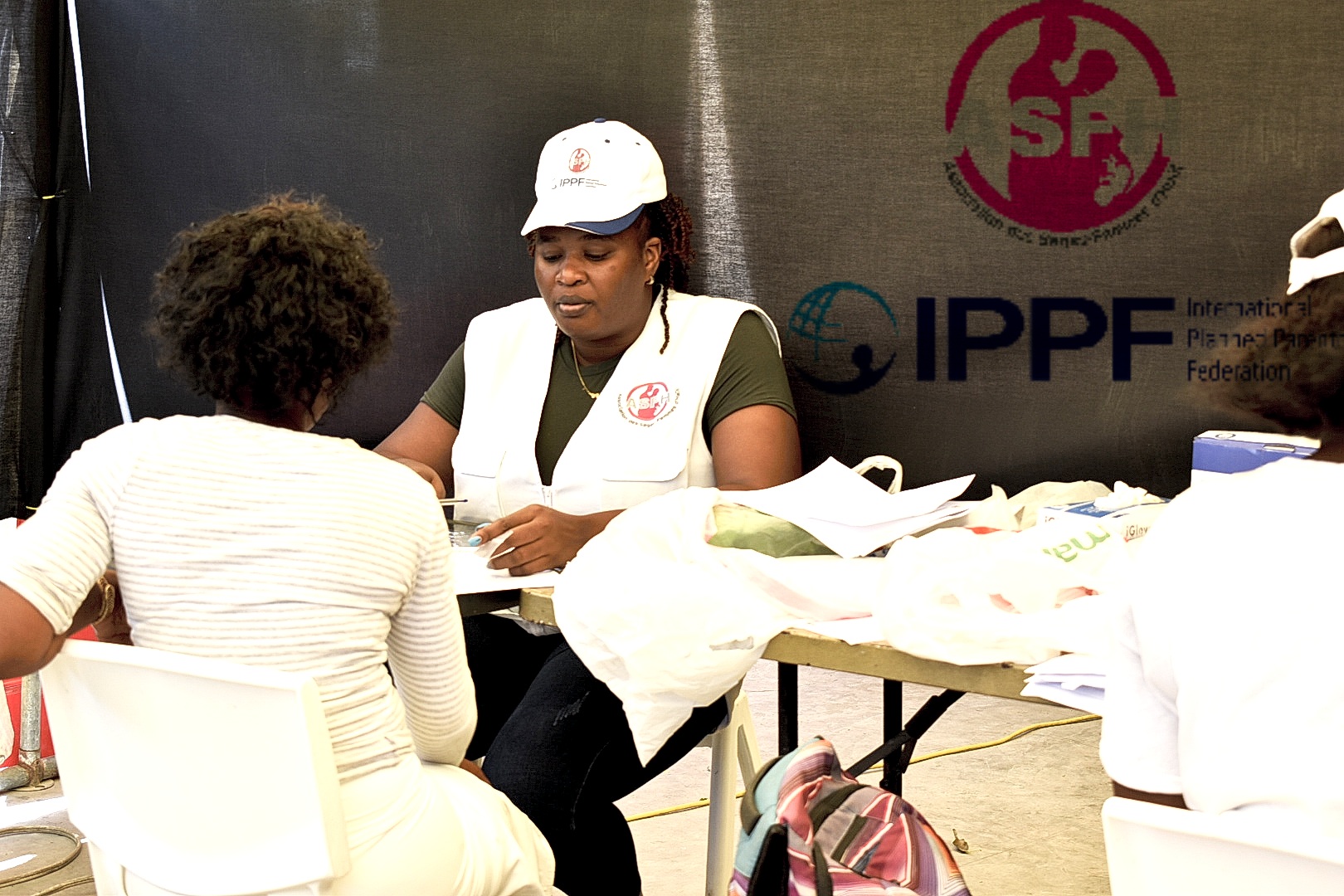Latest press releases
A selection of stories from across the Federation

Netherlands
Rutgers triumphs in landmark court case against lies, online hate and disinformation
Rutgers, the Netherlands’ leading sexual and reproductive health expert and IPPF’s Member Association, has today secured a landmark legal win against an ultra-conservative group.
For media enquiries


| 11 December 2024
We Must Protect Critical Sexual and Reproductive Health and Rights During Syria's Transition
IPPF remains steadfast in its commitment to supporting its Member Association, the Syrian Family Planning Association (SFPA), in providing essential SRHR services for all. Within the uncertainty and instability, we continue to work together with SFPA to empower communities, protect the rights of women and adolescents, and address the urgent needs of marginalized populations, particularly in the face of increased vulnerability. Our collective mission stands firm: we are committed to ensuring that dignity, health, and choice are accessible to all, regardless of political or social challenges. Even in these uncertain times, we believe that SRHR services must continue - because the need for family planning, maternal healthcare, and gender-based violence (GBV) support does not diminish, even in the midst of conflict. Syria is enduring a difficult period of transition, but sexual and reproductive health cannot be sidelined. The health and well-being of Syria’s most vulnerable populations, especially women and youth, remain a top priority. The work of SFPA is more essential than ever, as it continues to provide vital services such as family planning, postnatal care, and GBV screening. At Al-Hasakah, SFPA is on the frontlines, directly supporting over 5,000 people, the majority of whom are women in urgent need of reproductive healthcare services. These women face an increased risk of complications due to the lack of access to safe and comprehensive health services, but SFPA is committed to meeting their needs. From providing postnatal care to offering family planning options and GBV screenings, SFPA is ensuring that women in these vulnerable circumstances are not forgotten. SFPA’s clinics, such as the one in southern Daraa and the besieged Al-Waer in Homs, have become lifelines, serving as a beacon of hope for those in need. They provide up to 70 beneficiaries a day with crucial services, including health counselling and early marriage awareness. SFPA has faced significant challenges, including the seizing of vehicles and temporary clinic closures in the suburbs of Homs. Yet SFPA's perseverance in delivering SRHR services remains an essential lifeline for the people of Syria. We will continue to stand alongside SFPA in their tireless efforts to safeguard sexual and reproductive health rights, ensuring that every woman, adolescent, and marginalized person has access to the care they deserve. Together, we stand for dignity, health, and choice, even in the face of uncertainty. The challenges are great, but the importance of maintaining SRHR services is immeasurable. Through unwavering dedication, we can support those in need and contribute to a future where everyone has access to the care and rights they deserve. Contact: +44 7918 845944 Image credit: SFPA/Wasim Kashlan

| 19 June 2024
IPPF Statement on the Ongoing Violence in Haiti
Haz click aquí para leer este posicionamiento en español The International Planned Parenthood Federation (IPPF) is deeply concerned about the escalating violence and political instability in Haiti, particularly its disproportionate impact on women and girls since March 2024. This crisis is expected to leave 3,000 pregnant women without essential medical care, leading to nearly 450 women experiencing life-threatening childbirth complications. With almost 580,000 Haitians displaced, women and girls are experiencing an alarming surge in sexual and gender-based violence (SGBV), including rampant sexual assaults, torture, and collective rape by armed groups. From January to March 2024, there were 1,793 SGBV incidents reported. Conflict-related insecurity has also significantly increased negative coping mechanisms, contributing to the rise in SGBV, as well as sexually transmitted infections and HIV. The ongoing violence is preventing access to essential sexual and reproductive healthcare services, endangering the lives of mothers and newborns. Our partner in Haiti, the Haiti Midwives Association, informed us, ‘the gangs prohibit the movement of motorcycles and pedestrians, threatening and sometimes shooting in the air to terrorise us further. Due to these difficult conditions, fewer and fewer patients are attending the hospital, whether for prenatal consultations, deliveries or postnatal care.” This inaccessibility has led to a significant increase in maternal and infant mortality. Eugenia López Uribe, Regional Director of the IPPF Americas & the Caribbean, said, “Humanitarian aid must be granted access through local organisations, such as our partner the Haiti Midwives Association, and their wellbeing must be guaranteed in this process. Women and girls can no longer wait! Our partner has provided access to vital emergency services such as pregnancy, childbirth and postpartum care, as well as care after sexual violence for 20 years. However, since February, they have been forced to stop their activities because of the imminent risks they face as women living in Port-au-Prince and surrounding areas.” On this International Day for the Elimination of Sexual Violence in Conflict, IPPF calls for zero tolerance toward any form of SGBV and demands the immediate protection of Haitian women, children, and those most at risk. We strongly call for unhindered humanitarian access to allow aid into Haiti. This aid must be designed and controlled by local NGOs and aid workers, and any foreign peacekeepers must safeguard and protect local communities - in particular their sexual and reproductive rights - so mistakes of the past are not repeated. Let’s not forget: Haiti's poverty and instability has been shaped by decades of foreign occupation and colonialism. The international community owes Haiti more than mere condolences; they owe an unwavering commitment to a future where human rights, including sexual and reproductive health rights are respected and protected, and nobody is left behind.
















